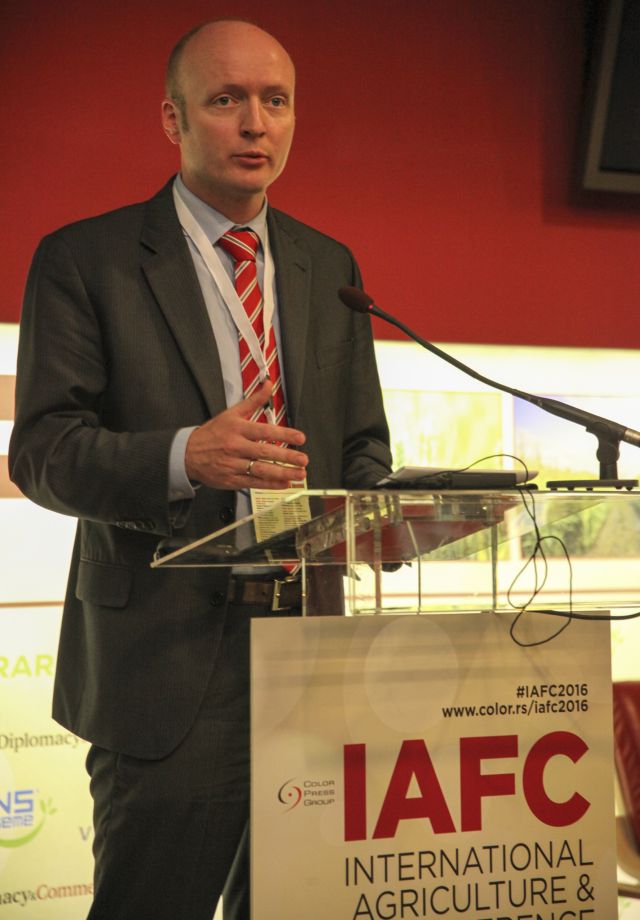Within the Agricultural Fair held at the Novi Sad Fair from 14th to 20th May 2016, Color Press Group, in cooperation with the magazine “Diplomacy & Commerce” for the first time organised the “International Agriculture & Food Conference”.
Freek Janmaat, Head of the Economy department of the EU Delegation in Serbia
Considering the EU accession process, we have made certain progress in the field of agriculture as well. We have finished the screening report, and Serbia has to adopt all the EU legislation and also to implement it. The second important thing is the management of EAFRD funds, which is important since Serbia will have to manage the funds from the Common Agricultural Policy (CAP) of the EU once Serbia is a member. Serbia has submitted a draft plan for the adoption of the EU legislature. CAP has been reformed in 2014 to be more targeted. Now it is centred around small farms. Also to be eligible to get the direct payments the farmers have to adopt some environmental standards. And what is importat to Serbia at the moment as we see it? First of all, to have a stable agricultural policy. It is important that the Government adopted the Rural Agricultural Development policy 2016-2020. It is relevant for farmers to get to know what is the future situation in order to make larger investments. It give a predictable framework about the subsidies and the general path in the future, so you can calculate your own investments.
Since Serbia started with accession and liberalisation in the agricultural sector it opened up, and it lead to the surplus of Serbia in the agricultural trade, and the fears that the agriculture in Serbia will be destroyed are incorrect. Very important issue is GMO products and during 5 years Serbia did nothing about it and it is a disappointment. Serbia should be stricter and therefore safer about that. Strict in labelling and traceability of GMO in the food chain. Also there are strict laboratory tests to allow a very few GMO products to enter the market. Serbia will have to abolish the ban of GMO import, but in return it will get much safer and secure system of labelling and traceability of GMO food. And there is a much concern about the TTIP and its effects on the GMO import, but it will just need to level up the standards between the EU and the USA.
